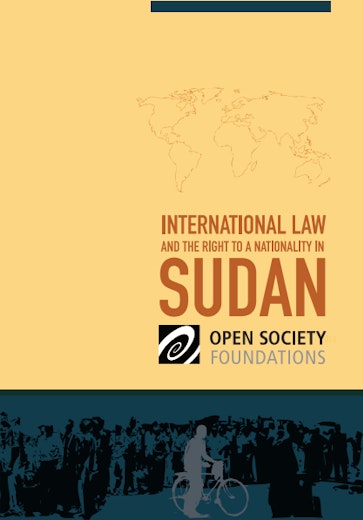International Law and the Right to Nationality in Sudan
Among many in Sudan—as well as across Africa and the rest of the world—the instinctive response to the question “Who are we, the citizens?” is: “We are the natives, the people who have always been here." Everyone who is not a “native” is therefore a foreigner, or at best a guest. But this “instinctive” response is very poorly adapted to today's world of post-imperial states and global migration, where populations have moved—or been moved—across or within borders that have often changed. No country can hold onto the myth—which was always a myth—that its citizens share “one blood"; and the dangers of a fixation on loyalty and belonging based on blood and soil were amply demonstrated by the history of 20th-century Europe.
In the aftermath of the referendums on the status of South Sudan and Abyei, questions surrounding nationality and citizenship loom especially large in Sudan. This report, published by the Open Society Foundations, weighs in on the debate and offers specific recommendations on the criteria that should be used to determine citizenship in the new entities.
This paper argues strongly that the negotiating parties should reject ethnicity as the basis for determining membership of the new polities. Instead, they should adopt the nondiscriminatory norms established by international human rights law, providing for citizenship to be granted on the basis of any appropriate connection to the territory, respecting the rights of individuals to opt for the nationality they prefer, and with the default option based on habitual residence.
Topics
- Climate Justice
- Digital Rights and Fair Elections
- Discrimination and Racial Justice
- International Crimes
